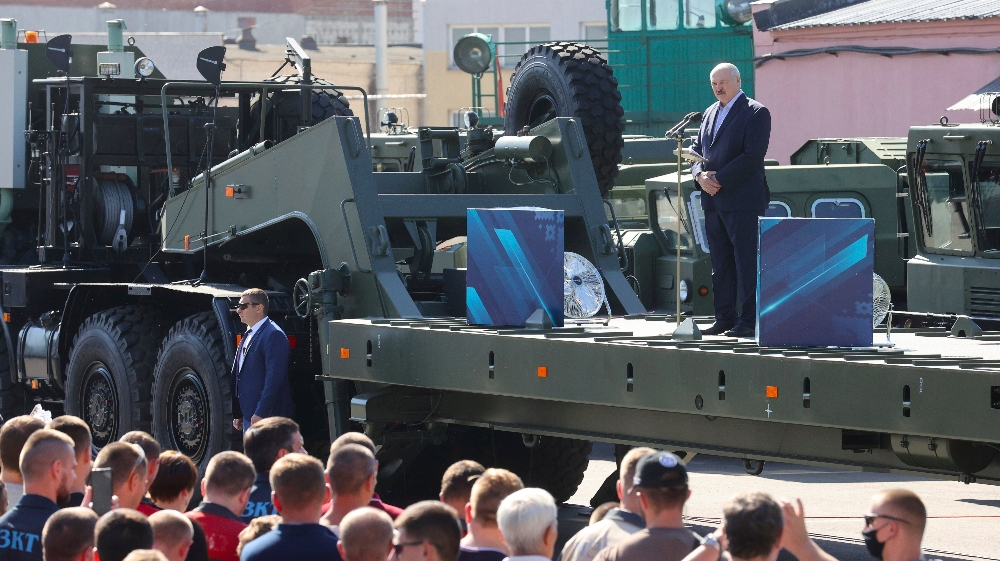Leon Trotsky
Workers’ Control of Production
(August 1931)
In answering your question I will endeavor to jot down here, as a preliminary to an exchange of opinions, a few general considerations pertaining to the slogan of workers’ control of production.
The first question that arises in this connection is: Can we picture workers’ control of production as a stable regime, not everlasting, of course, but of quite long duration? In order to reply to the question it is necessary to determine the class nature of this regime more clearly. Control lies in the hands of the workers. This means: ownership and right of disposition remain in the hands of the capitalists. Thus, the regime has a contradictory character, presenting a sort of economic interregnum.
The workers need control not for platonic purposes, but in order to exert practical influence upon the production and commercial operations of the employers. This cannot, however, be attained unless the control, in one form or another, within such and such limits, is transformed into direct management. In a developed form, workers’ control thus implies a sort of economic dual power in the factory, the bank, commercial enterprise, and so forth.
If the participation of the workers in the management of production is to be lasting, stable, “normal,” it must rest upon class collaboration, and not upon class struggle. Such a class collaboration can be realized only through the upper strata of the trade unions and the capitalist associations. There have been not a few such experiments: in Germany (“economic democracy”), in Britain (“Mondism”), etc. Yet, in all these instances, it was not a case of workers’ control over capital, but of the subserviency of the labor bureaucracy to capital. Such subserviency, as experience shows, can last for a long time: depending on the patience of the proletariat.
The closer it is to production, to the factory, to the shop, the less possible such a regime is, for here it is a matter of the immediate, vital interests of the workers, and the whole process unfolds under their very eyes. workers’ control through factory councils is conceivable only on the basis of sharp class struggle, not collaboration. But this really means dual power in the enterprises, in the trusts, in all the branches of industry, in the whole economy.
What state regime corresponds to workers’ control of production? It is obvious that the power is not yet in the hands of the proletariat, otherwise we would have not workers’ control of production but the control of production by the workers’ state as an introduction to a regime of state production on the foundations of nationalization. What we are talking about is workers’ control under the capitalist regime, under the power of the bourgeoisie. However, a bourgeoisie that feels it is firmly in the saddle will never tolerate dual power in its enterprises. workers’ control consequently, can be carried out only under the condition of an abrupt change in the relationship of forces unfavorable to the bourgeoisie and its state. Control can be imposed only by force upon the bourgeoisie, by a proletariat on the road to the moment of taking power from them, and then also ownership of the means of production. Thus the regime of workers’ control, a provisional transitional regime by its very essence, can correspond only to the period of the convulsing of the bourgeois state, the proletarian offensive, and the failing back of the bourgeoisie, that is, to the period of the proletarian revolution in the fullest sense of the word.
If the bourgeois is already no longer the master, that is, not entirely the master, in his factory, then it follows that he is also no longer completely the master in his state. This means that to the regime of dual power in the factories corresponds the regime of dual power in the state.
This correspondence, however, should not be understood mechanically, that is, not as meaning that dual power in the enterprises and dual power in the state are born on one and the same day. An advanced regime of dual power, as one of the highly probable stages of the proletarian revolution in every country, can develop in different countries in different ways, from differing elements. Thus, for example, in certain circumstances (a deep and persevering economic crisis, a strong state of organization of the workers in the enterprises, a relatively weak revolutionary party, a relatively strong state keeping a vigorous fascism in reserve, etc.) workers’ control of production can come considerably ahead of developed political dual power in a country.
Under the conditions mentioned above in broad outline, now especially characteristic of Germany, dual power in the country can develop precisely from workers’ control as its main source. One must dwell upon this fact, if only to reject that fetishism of the soviet form which the epigones in the Comintern have put into circulation.
According to the official view prevailing at the present time, the proletarian revolution can be accomplished only by means of the soviets; these, in turn, must be created specifically for the purpose of the armed uprising. This cliche is not appropriate to anything. The soviets are only an organizational form; the question is decided by the class content of the policy and by no means by its form. In Germany, there were Ebert-Scheidemann soviets. [2] In Russia, the conciliationist soviets attacked the workers and soldiers in July 1917. After that Lenin thought for a time that we would have to achieve the armed uprising supporting ourselves not on the soviets, but on the factory committees. This calculation was refuted by the course of events, for we were able, in the six to eight weeks before the uprising, to win over the most important soviets. But this very example shows how little we were inclined to consider the soviets as a panacea. In the fail of 1923, defending against Stalin and others the necessity of passing over to the revolutionary offensive, I fought at the same time against the creation, on command, of soviets in Germany side by side with the factory councils, which were already actually beginning to fulfill the role of soviets.
There is much to be said for the idea that in the present revolutionary upsurge, also, the factory councils in Germany, at a certain stage of their development will be able to play the role of soviets and replace them. Upon what do I base this supposition? Upon the analysis of the conditions under which the soviets arose in Russia in February-March 1917, and in Germany and Austria in November 1918. In all three places, the main organizers of the soviets were Mensheviks and Social Democrats, who were forced to do it by the conditions of the “democratic revolution in time of war. In Russia, the Bolsheviks were successful in winning over the soviets from the conciliators. In Germany, they did not succeed, and that is why the soviets disappeared.
Today, in 1931, the word “soviets” sounds quite different from the way it sounded in 1917-1918. Today it is a synonym for the dictatorship of the Bolsheviks, and hence a bugbear on the lips of the Social Democracy. The Social Democrats in Germany will not only not seize the initiative in the creation of soviets for the second time, and not join voluntarily in this initiative – they will fight against it to the last. In the eyes of the bourgeois state, especially its fascist guard, the Communists” setting to work creating soviets will be equivalent to a direct declaration of civil war by the proletariat, and consequently could provoke a decisive clash before the Communist Party itself deems it expedient.
All these considerations prompt us strongly to doubt if one could succeed, before the uprising and the seizure of power in Germany, in creating soviets which would really embrace the majority of the workers. In my opinion, it is more probable that in Germany the soviets will be born the morning after the victory, by then as direct organs of power.
The question of the factory councils is another matter altogether. They already exist today. Both Communists and Social Democrats are building them. In a certain sense, the factory councils are the realization of the united front of the working class. They will broaden and deepen this particular function with the rise of the revolutionary tide. Their role will grow, as will their encroachments into the life of the factory, of the city, of the branches of industry, of the regions, and finally of the whole state. Provincial, regional, and national congresses of the factory councils can serve as the basis for the organs that will in fact fulfill the role of soviets, that is, the organs of dual power. To draw the Social Democratic workers into this regime through the medium of factory councils will be much easier than to call upon the workers directly to construct soviets on a certain day at a given hour.
The central body of a city’s factory councils can thoroughly fulfill the role of the city soviet. This was observed in Germany in 1923. By extending their function, setting for themselves ever bolder tasks, and creating their own federal organs, the factory councils can grow into soviets, having closely united the Social Democratic and Communist workers; and they can serve as the organizational base for the insurrection. After the victory of the proletariat these factory councils/soviets will naturally have to separate themselves into factory councils in the proper sense of the word, and into soviets as organs of the dictatorship of the proletariat
By all this, we do not at all mean that the creation of soviets before the proletarian overturn in Germany is completely excluded in advance. There is no possibility of foreseeing all conceivable variants of the development. Were the breakup of the bourgeois state to come long before the proletarian revolution; were fascism to be smashed to bits or to burn out before the uprising of the proletariat then the conditions could be created for the construction of soviets as the organs of the struggle for power. Of course, in that event the Communists would have to perceive the situation in time and raise the slogan of soviets. This would be the most favorable situation conceivable for the proletarian uprising. If it takes shape, it has to be utilized to the end. But to count upon it in advance is quite impossible. So long as the Communists must reckon with a still sufficiently strong bourgeois state, with the reserve army of fascism at its back, the road through the factory councils and not through soviets appears to be the much more probable one.
The epigones have purely mechanically adopted the notion that workers’ control of production, like soviets, can only be realized under revolutionary conditions. If the Stalinists tried to arrange their prejudices in a definite system, they would probably argue as follows: workers’ control as a sort of economic dual power is inconceivable without political dual power in the country, which in turn is inconceivable without the opposition of soviets to the bourgeois power; consequently – the Stalinists would be inclined to conclude – to advance the slogan of workers’ control of production is admissible only simultaneously with the slogan of soviets.
From all that has been said above, it is quite clear how false, schematic, and lifeless is such a construction. In practice, this is transformed into the unique ultimatum which the party puts to the workers: I, the party, will allow you to fight for workers’ control only in the event that you agree simultaneously to build soviets. But this is precisely what is involved – that these two processes need not necessarily run in parallel and simultaneously. Under the influence of crisis, unemployment and the predatory manipulations of the capitalists, the working class in its majority may turn out to be ready to fight for the abolition of business secrecy and for control over banks, commerce, and production before it has come to understand the necessity of the revolutionary conquest for power.
After taking the path of control of production, the proletariat will inevitably press forward in the direction of the seizure of power and of the means of production. Questions of credits, of raw materials, of markets, will immediately extend control beyond the confines of individual enterprises. In so highly industrialized a country as Germany, the questions of export and import right away ought to raise workers’ control to the level of national tasks and to counterpose the central organs of workers’ control to the official organs of the bourgeois state. The contradictions, irreconcilable in their essence, of the regime of workers’ control will inevitably be sharpened to the degree that its sphere and its tasks are extended, and soon will become intolerable. A way out of these contradictions can be found either in the capture of power by the proletariat (Russia) or in the fascist counterrevolution, which establishes the naked dictatorship of capital (Italy). It is precisely in Germany, with its strong Social Democracy, that the struggle for workers’ control of production will in all probability be the first stage of the revolutionary united front of the workers, which precedes their open struggle for power.
Can the slogan of workers’ control, however, be raised right now? Has the revolutionary situation ripened enough for that? The question is hard to answer from the sidelines. There is no thermometer which would permit the determination, immediately and accurately, of the temperature of the revolutionary situation. One is compelled to determine it in action, in struggle, with the aid of the most various measuring instruments. One of these instruments, perhaps one of the most important under the given conditions, is precisely the slogan of workers’ control of production.
The significance of this slogan lies primarily in the fact that on the basis of it, the united front of the Communist workers with the Social Democratic, non-party, Christian [3], and other workers can be prepared. The attitude of the Social Democratic workers is decisive. The revolutionary united front of the Communists and the Social Democrats – that is the fundamental political condition that is lacking in Germany for a directly revolutionary situation. The presence of a strong fascism is surely a serious obstacle on the road to victory. But fascism can retain its power of attraction only because the proletariat is split up and weak, and because it lacks the possibility of leading the German people onto the road of the victorious revolution. The revolutionary united front of the working class already signifies, in itself, a fatal political blow to fascism.
For this reason, be it said in passing, the policy of the German Communist Party leadership on the question of the referendum [4] has an especially criminal character. The most rabid foe could not have thought up a surer way of inciting the Social Democratic workers against the Communist Party and of holding up the development of the policy of the revolutionary united front.
Now this mistake must be corrected. The slogan of workers’ control can be extraordinarily useful in this regard. However, it must be approached correctly. Advanced without the necessary preparation, as a bureaucratic command, the slogan of workers’ control may not only prove to be a blank shot, but even more, may compromise the party in the eyes of the working masses by undermining confidence in it even among those workers who today vote for it. Before officially raising this very crucial slogan, the situation must be read well and the ground for it prepared.
We must begin from below, from the factory, from the shop. The questions of workers’ control must be checked and adapted for the operation of certain typical industrial, banking, and commercial enterprises. We must take as a point of departure especially clear cases of speculation, the hidden lockout, perfidious understatement of profits aimed at reductions of wages or mendacious exaggeration of production costs for the same purpose, and so forth. In an enterprise which has fallen victim to such machinations, the Communist workers must be the ones through whom are felt the moods of the rest of the working masses, above all, of the Social Democratic workers: to what extent they would be ready to respond to the demand to abolish business secrecy and establish workers’ control of production. Using the occasion of particularly clear individual cases, we must begin with a direct statement of the question to conduct propaganda persistently, and in this way measure the power of resistance of Social Democratic conservatism. This would be one of the best ways of establishing to what degree the revolutionary situation has ripened.
The preliminary feeling-out of the ground assumes a simultaneous theoretical and propagandistic elaboration of the question of the party, a serious and objective instructing of the advanced workers, in the first place of the factory council members, of the prominent trade-union workers, etc. Only the course of this preparatory work, that is, the degree of its success, can suggest at what moment the party can pass over from propaganda to developed agitation and to direct practical action under the slogan of workers’ control.
The policy of the Left Opposition on this question follows clearly enough from what has been presented, at least in its essential features. It is a question in the first period of propaganda for the correct principled way of putting the question and at the same time of the study of the concrete conditions of the struggle for workers’ control. The Opposition, on a small scale and to a modest degree corresponding with its forces, must take up the preparatory work which was characterized above as the next task of the party. On the basis of this task, the Opposition must seek contact with the Communists who are working in the factory councils and in the trade unions, explain to them our understanding of the situation as a whole, and learn from them how our correct views on the development of the revolution are to be adapted to the concrete conditions of the factory and shop.
Postscript
P.S. I wanted to close with this, only it occurs to me that the Stalinists might make the following objection: you are prepared to “dismiss” the slogan of soviets for Germany; but you criticized us bitterly and branded us because at one time we refused to proclaim the slogan of soviets in China. In reality, such an “objection” is only the most base sophistry, which is founded on the same organizational fetishism, that is, upon the identification of the class essence with the organizational form. Had the Stalinists declared at that time that there were reasons in China which hindered the application of the soviet form, and had they recommended some other organizational form of the revolutionary united front of the masses, one more suited to Chinese conditions, we would naturally have given such a proposal the greatest attention. But we were recommended to replace the soviets with the Kuomintang, that is, with the enslavement of the workers to the capitalists. The dispute was over the class content of an organization and not at all over its organizational “technology.” But we must add to this that precisely in China there were no subjective obstacles at all for the construction of soviets, if we take into consideration the consciousness of the masses, and not that of Stalin’s allies of that time, Chiang Kai-shek and Wang Chin-wei. The Chinese workers have no Social Democratic, conservative traditions. The enthusiasm for the Soviet Union was truly universal. Even the present-day peasants’ movement in China strives to adopt soviet forms. All the more general was the striving of the masses for soviets in the years 1925-1927.
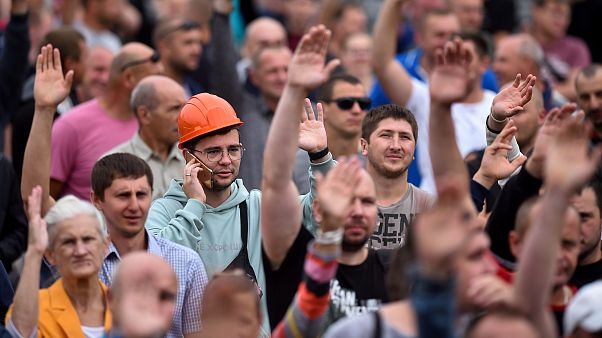
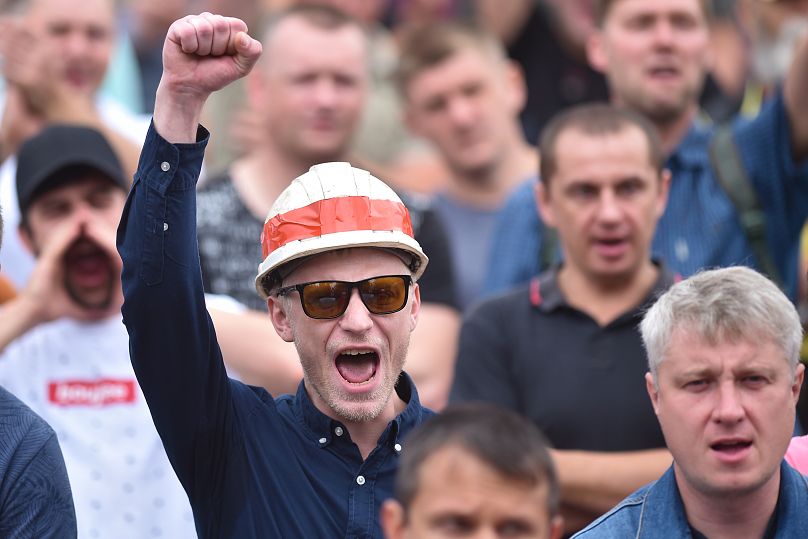
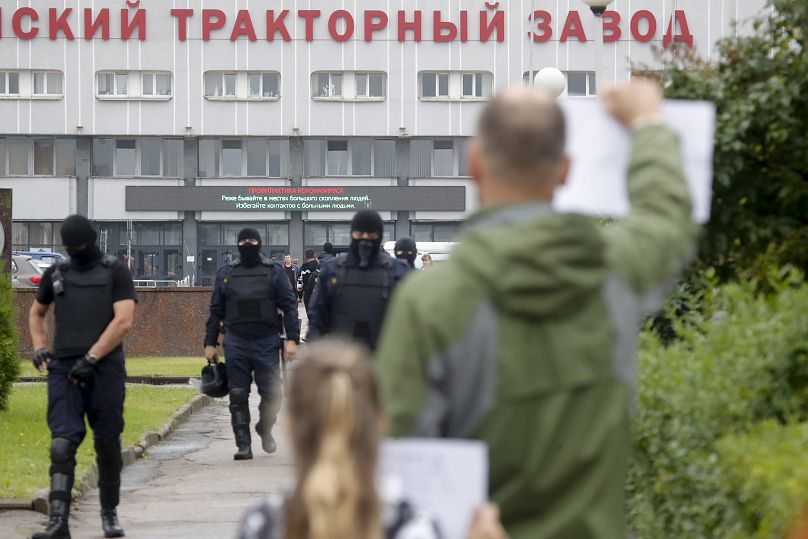
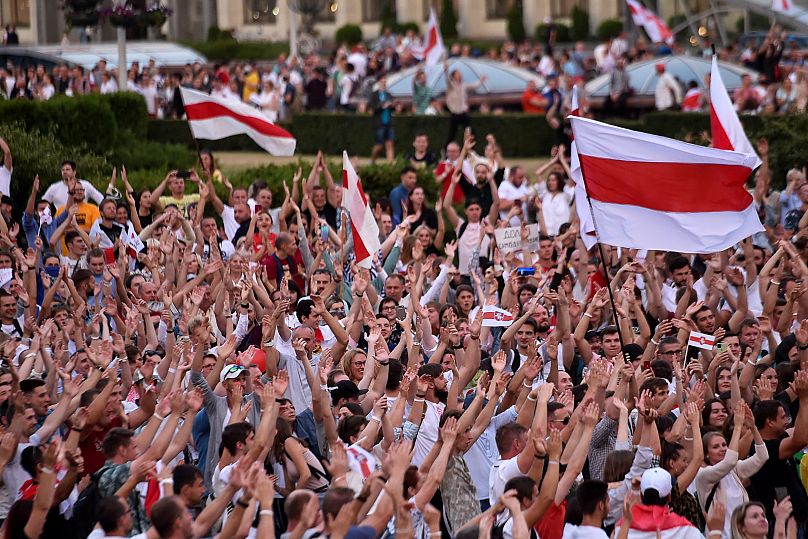
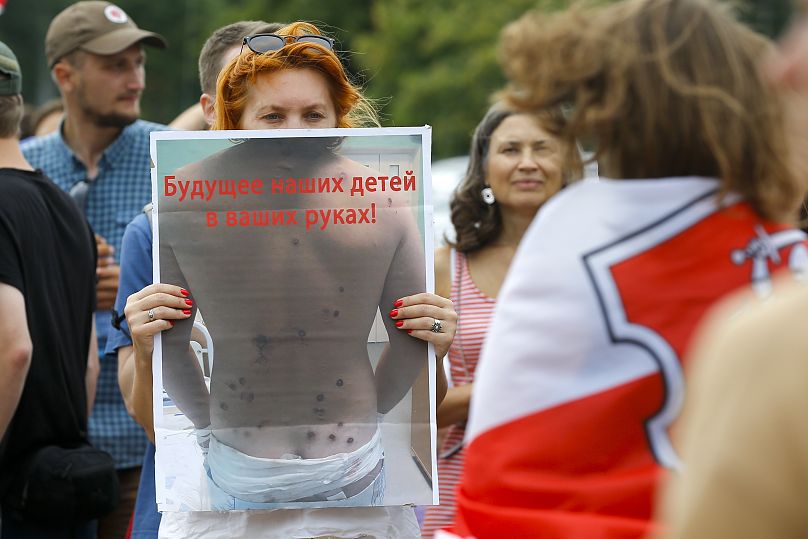
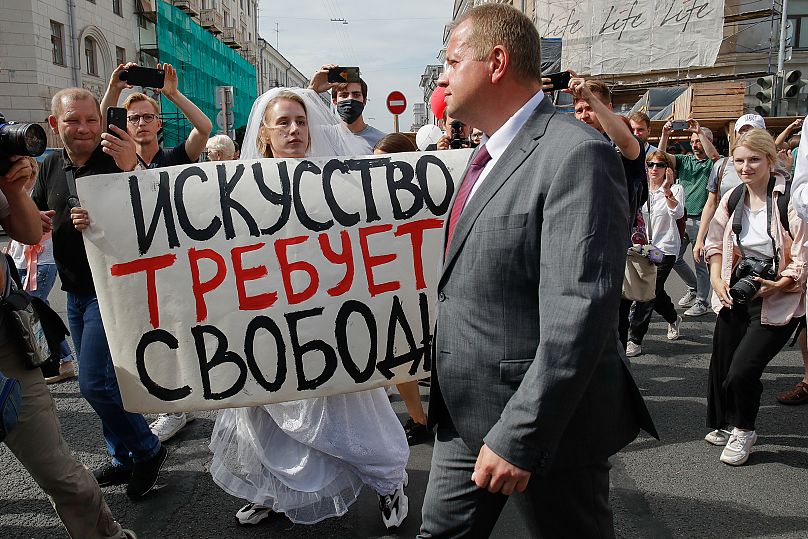
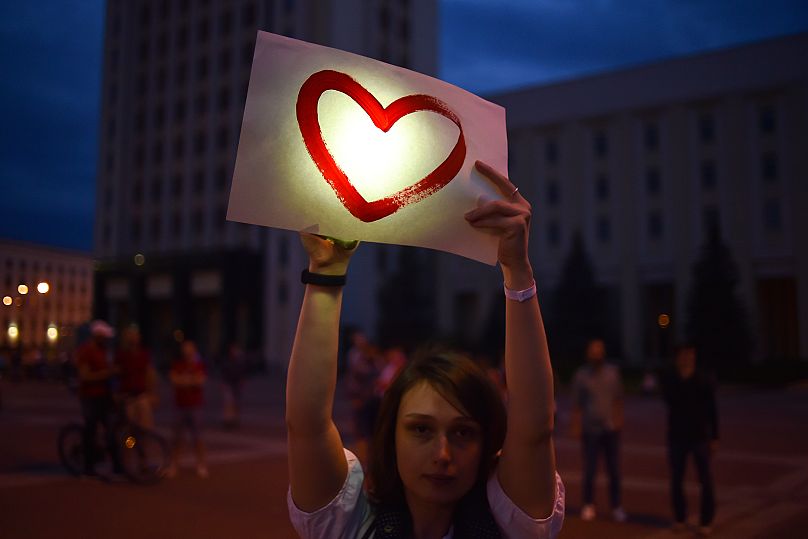
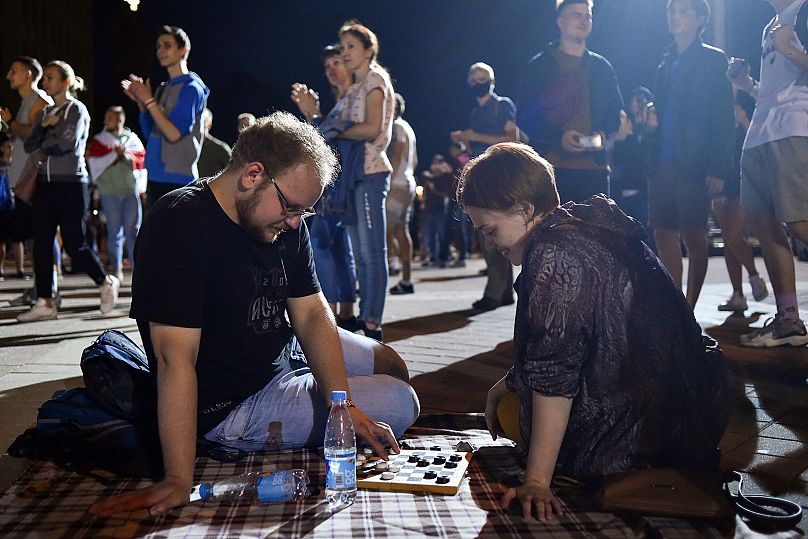
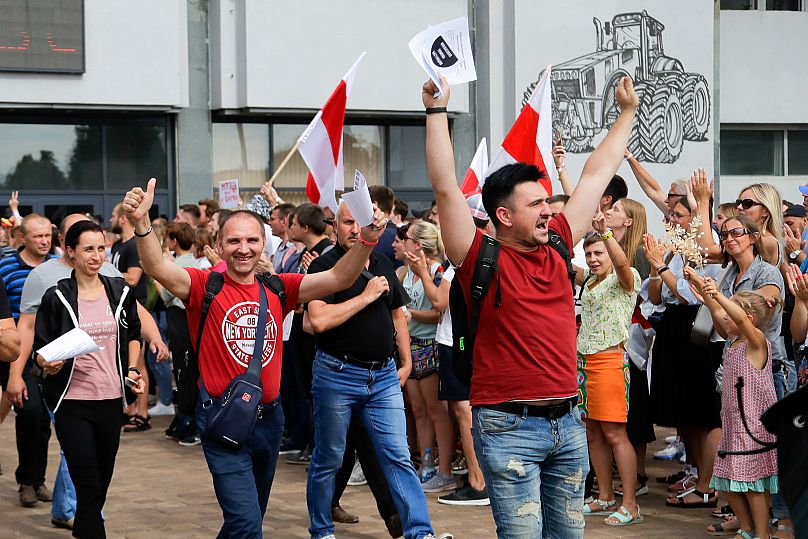
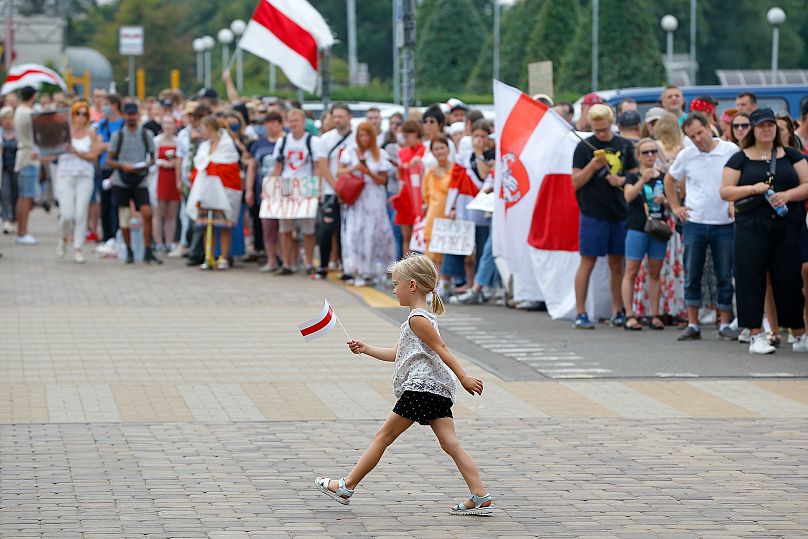









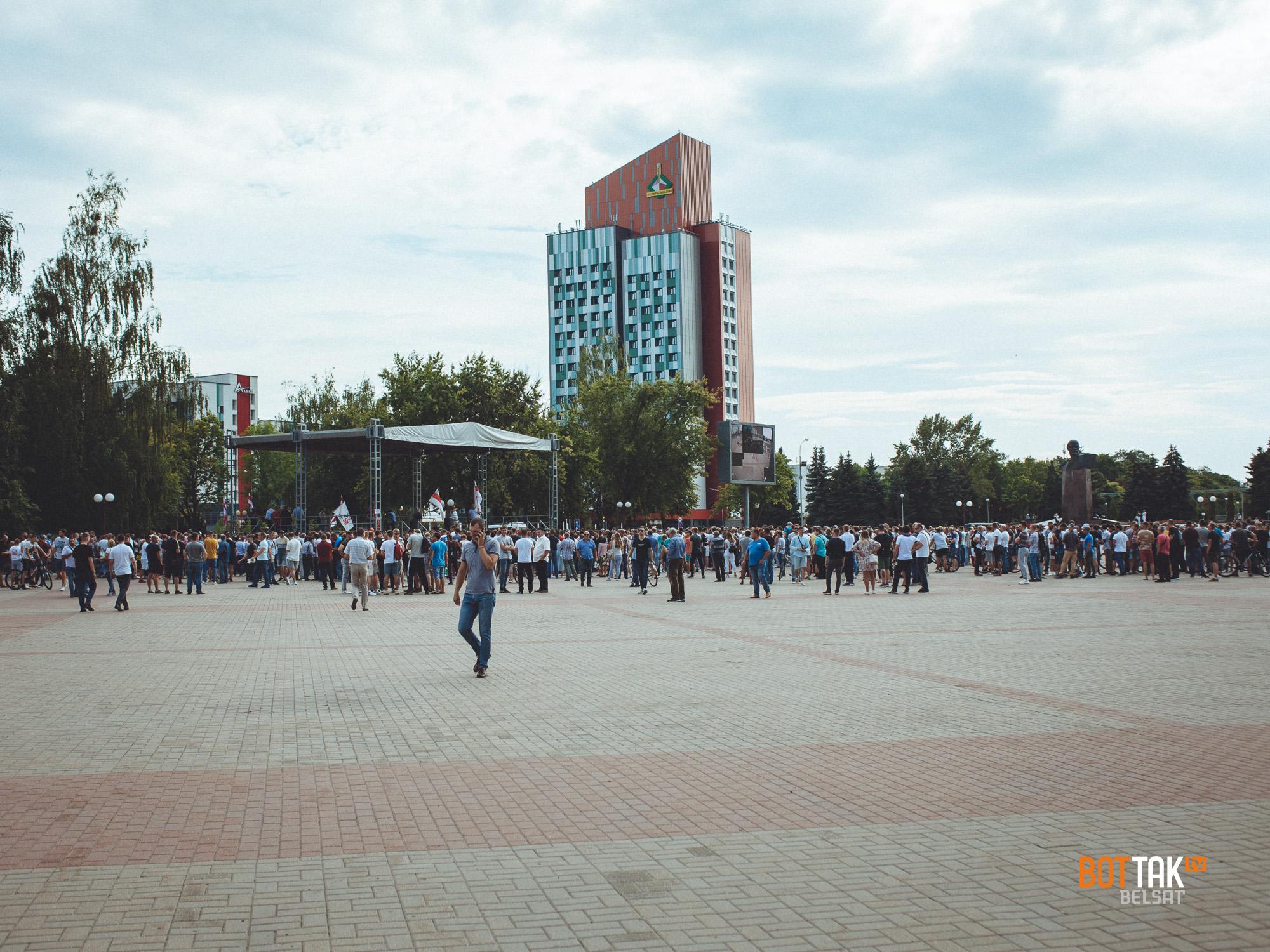



 © Natalia Fedosenko/TASS
© Natalia Fedosenko/TASS




